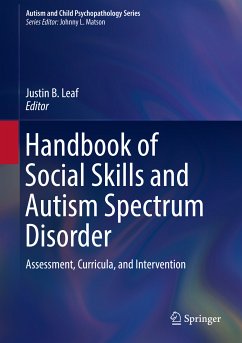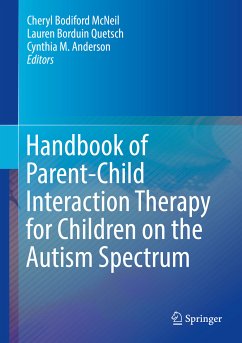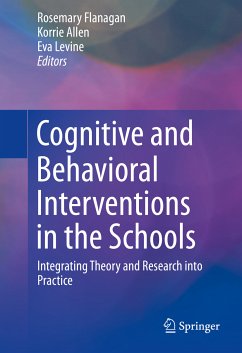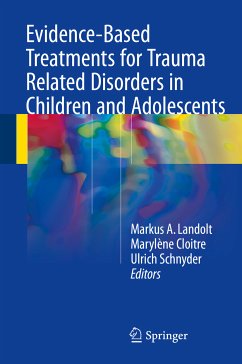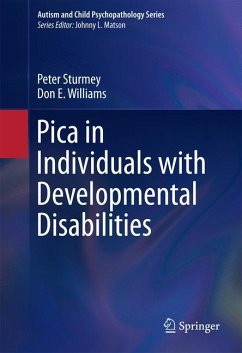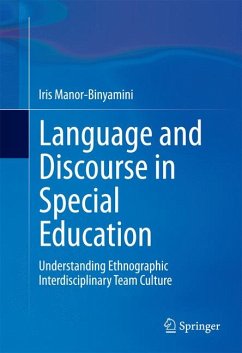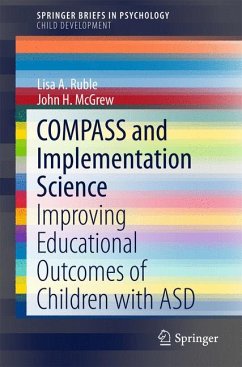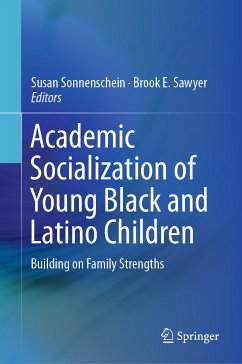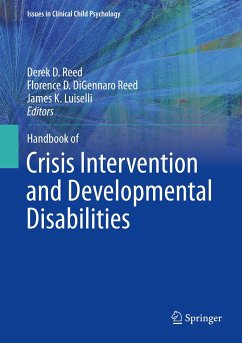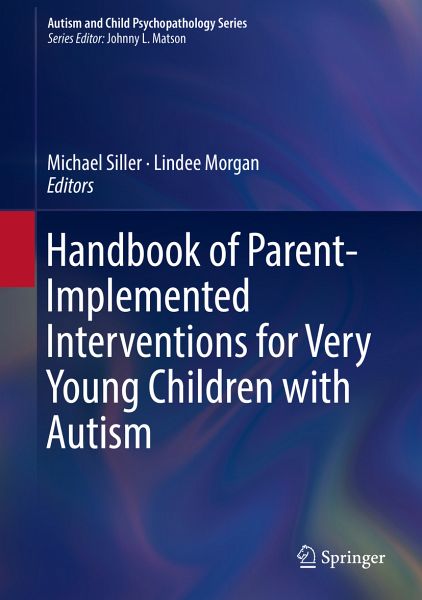
Handbook of Parent-Implemented Interventions for Very Young Children with Autism (eBook, PDF)
Versandkostenfrei!
Sofort per Download lieferbar
216,95 €
inkl. MwSt.
Weitere Ausgaben:

PAYBACK Punkte
108 °P sammeln!
This handbook offers practical strategies and evidence-based parent-implemented interventions for very young children with autism spectrum disorder (ASD). It explores this important subject within the context of rapidly increasing numbers of toddlers who are diagnosed with ASD during the second year of life. The handbook discusses how parents of young children with ASD can effectively be supported, taught, and coached to implement evidence-based parenting strategies and intervention techniques, and describes a broad range of developmentally appropriate programs at the family, community, and se...
This handbook offers practical strategies and evidence-based parent-implemented interventions for very young children with autism spectrum disorder (ASD). It explores this important subject within the context of rapidly increasing numbers of toddlers who are diagnosed with ASD during the second year of life. The handbook discusses how parents of young children with ASD can effectively be supported, taught, and coached to implement evidence-based parenting strategies and intervention techniques, and describes a broad range of developmentally appropriate programs at the family, community, and service delivery levels. In addition, the handbook examines individual differences in parenting cognitions, emotions, and practices and proposes strategies for supporting the varying capacities of diverse families to meet the needs of young children with ASD. Chapters provide diverse coverage, spanning cultural/socio-economic differences as well as differences in family structure; parenting cognitions, emotions, and practices; parental learning styles; and access to social support.
Featured topics include:
- Supporting families of high-risk infants who have an older sibling with ASD.
- The use of video feedback strategies in parent-mediated early ASD intervention.
- The Incredible Years (IY) Parent Program for preschool children with ASD and language delays.
- Self-help for parents of children with ASD.
- The Family Implemented TEACCH for Toddlers (FITT) support model.
- Parent-implemented interventions for underserved families in Taiwan.
- Family and provider-based interventions in South Asia.
The Handbook of Parent-Implemented Interventions for Very Young Children with Autism is a must-have resource for researchers, clinicians/professionals, and graduate students in clinical child, school, anddevelopmental psychology, family studies, behavioral therapy, and social work as well as rehabilitation medicine/therapy, child and adolescent psychiatry, pediatrics, and special education/educational psychology.
Dieser Download kann aus rechtlichen Gründen nur mit Rechnungsadresse in A, B, BG, CY, CZ, D, DK, EW, E, FIN, F, GR, HR, H, IRL, I, LT, L, LR, M, NL, PL, P, R, S, SLO, SK ausgeliefert werden.



